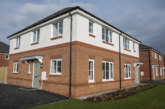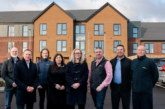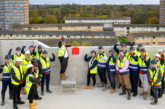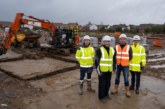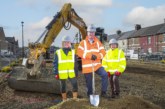
 Matthew Warburton, Policy Advisor at the Association of Retained Council Housing (ARCH), discusses the challenging environment social landlords face and says only through open, honest and full dialogue, can they expect to win the trust and cooperation of residents.
Matthew Warburton, Policy Advisor at the Association of Retained Council Housing (ARCH), discusses the challenging environment social landlords face and says only through open, honest and full dialogue, can they expect to win the trust and cooperation of residents.
Early in March, ARCH and the National Federation of ALMOs held their annual Chief Housing Officers conference. Hosted virtually by HouseMark for the second year because of COVID, the event still provided a much-needed opportunity for council housing’s senior management to assess and compare notes on the current issues faced by the sector.
General view: a hugely challenging environment that combines powerful drivers for service and property improvements at a time when the rising cost of living makes it harder to justify raising rents to pay for them. Building safety, Decent Homes 2 and net zero all demand investment in existing homes, while most councils still need and want to build more new ones — a perfect storm, as one speaker put it.
Meanwhile, residents are becoming increasingly impatient to see the service improvements promised by a Social Housing White Paper now 18 months old. The Regulator of Social Housing reported high numbers of tenant responses to their recent consultation on tenant satisfaction measures, but many expressed concern that they will not be fully operational for another three years. HouseMark data reports a significant decline in overall tenant satisfaction over the last three years; this may be largely attributable to the interruption of normal service by COVID, but it only adds to many other challenges involved in returning service delivery to post-COVID normality.
Housing Ombudsman
Complaints to the Housing Ombudsman have doubled in the last two years, with the majority being upheld by a finding of maladministration against the landlord. The Ombudsman’s analysis of these findings points three clear lessons. The first is that the complaint handling process itself is too often the problem, leaving residents frustrated and dissatisfied irrespective of the original problem that led them to complain.
Delegates at our Conference agreed that a positive attitude to complaints needs clear leadership from top management but also sustained work to
turn round defensive organisational cultures. But positive attitudes and cultures are not enough; the second lesson is that landlords are too often let down by poor systems whether for tracking repairs or complaints. There is an urgent case for investment in software fit for today’s purposes.
The third lesson is the need for better communication with residents, both better listening and taking seriously what they say and better efforts to keep them informed. This is particularly clearly illustrated in the Ombudsman’s recent report spotlighting damp and mould. Tellingly titled ‘It’s not lifestyle’, this highlights the failure of too many landlords to take complaints of damp seriously because they wrongly believe the problem is of residents’ own making. The Ombudsman describes this as fatalism that too often results in a lack of empathy, and, as he says “whether or not
we uphold their complaint [the residents’] experience is real and it is profound. It also reveals the strain on the resident and landlord relationship; the loss of trust and reputation”.
This illustrates clearly a crucial dimension of the emerging challenge. Residents rightly expect landlords to make their homes safe, decent and warm, but they also have a big part to play in making this happen. Whether in relation to ensuring building safety or achieving net zero, residents will need to adopt new behaviours and lifestyles. Only through open, honest and full dialogue can landlords expect to win the trust and
cooperation of residents. Any other approach is doomed to fail.

